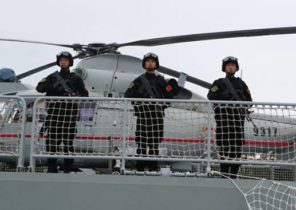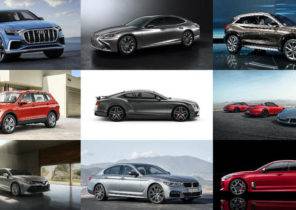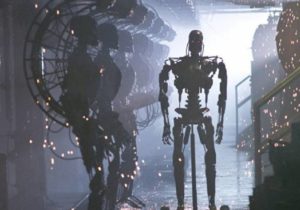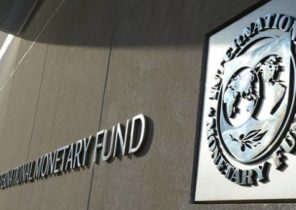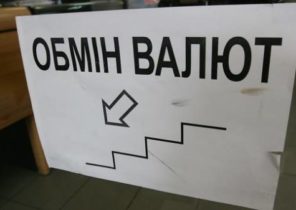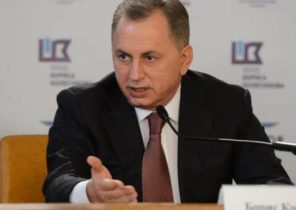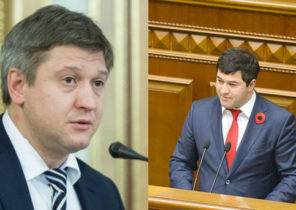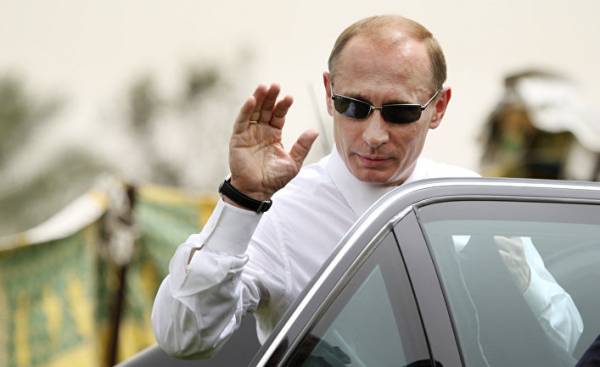
March 26, 2017 throughout Russia, a wave of mass anti-government rallies. Tens of thousands of people took to the streets in protest against corruption, namely, against Medvedev demanding to dismiss him from his post of Prime Minister. Despite the fact that official data on the number of participants differ greatly from the informal, this demonstration had nation-wide character.
Zheng Yongnian believes that in Russia is quite strict controls over the conduct of demonstrations. We can say that an opposition rally was one of the most ambitious in recent years. It is well known that, despite all the protests against Medvedev, Putin is the true leader of Russia and current Prime Minister just replace it. As it was the election in 2008, when Dmitry Medvedev became President of Russia.
In some countries for a long time originated the cult of personality of Putin. The leaders of many countries admire the personal qualities of Vladimir Putin. The Russian leader has charisma, a strong character, ruthlessly applies to the enemies, to defend and protect the interests of the state, besides he is a very talented politician. Even the President of the United States Donald trump has publicly expressed admiration and hopes to improve relations with Russia.
At first glance, Putin’s Russia seems politically stable government. Last year, after the elections to the State Duma “United Russia” won 343 seats out of 450, and at the local level, members of the ruling party took almost all the seats. In other words, Putin consolidated political power in their hands and minimized the impact of the opposition.
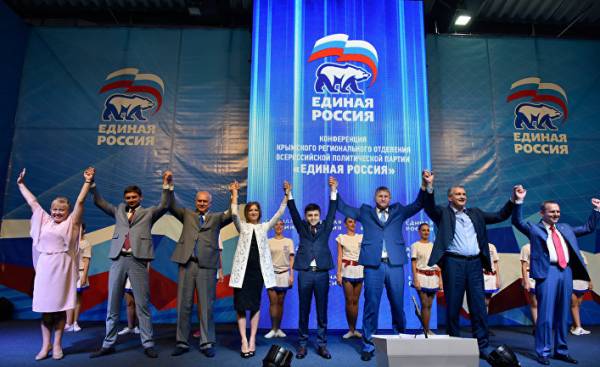 © RIA Novosti, Alexander Polehenko | go to fotoannunci 2nd phase III of the Conference of the Crimean regional branch of all-Russian political party “United Russia” in Simferopol
© RIA Novosti, Alexander Polehenko | go to fotoannunci 2nd phase III of the Conference of the Crimean regional branch of all-Russian political party “United Russia” in Simferopol
Since the beginning of democratization of the Russian society, Russia is most concerned about the possibility of interference of Western countries in the internal Affairs of the state. After coming to power, Putin has made many efforts to oust the opposition and not allow the West to interfere in internal Affairs.
Moreover, over the years, Putin has taken a number of measures to increase patriotism among the population. On the one hand, the Russians had formed an idea of their country as a mighty power. On the other hand, these measures provoked an increase of condemnation and criticism of the West.
In fact, because of the difficulties with which all these years have experienced Western democracy and diminishing the influence of the West in Russia (compared to the era of Gorbachev and Yeltsin), today most of the population of Russia believes that the country should follow its own development path and not blindly copy the Western model.
During Soviet times, the military-industrial complex was highly developed. At the moment Russia, thanks to the legacy of the Soviet Union has powerful military capabilities. After disintegration of the USSR the military power of the state are also began to wane. The decline was manifested in the reduction of funding the military sphere, but the technical equipment remained at a high level. Thanks to Putin, the Russian army was reborn: a reorganization of the army, has resumed funding. Recent years, the Russian army successfully demonstrates their skills in Ukraine and Syria.
As for the weak economy, many Western experts believe that Russia’s economy is in a state of collapse, but I would disagree. In the first presidential term of Vladimir Putin was actively developing the domestic economy, triggering a small but fairly rapid economic growth. True, the last few years, the Russian economy is facing great difficulties, but it is not destroyed. Besides, Russian people are accustomed to hardship and was fully aware that the current situation is caused by several factors: the changing international situation, falling oil prices and Western sanctions.
“Based on superficial achievements, it is difficult to lay a good Foundation for the revival of Russia”
It is believed that Putin came to power in one of the most difficult periods for Russia. Now, it would seem that all difficulties behind, and there is every chance to revive Russia. However, superficial achievements can be the basis for the revival of the country. The most important is the formation of an effective state apparatus, the creation of a new form of government. The coming to power of a strong leader usually leads to the emergence of powerful state, because a new, efficient system may not appear out of nowhere, it always requires a strong leader. But the emergence of a strong leader in power does not always lead to the formation of an effective state apparatus. For example, when the leader sees power as the realization of personal ambitions.
Today Russia just encountered this problem. The authority of Putin in the world is equal, while Russia is a very weak state. People have changed, but Russian culture has remained unchanged. Changed the system of government, but not its essence. To a significant extent, Russia is still the Soviet Union. Whether Putin will be able to avoid the fate of the USSR? Time will tell.
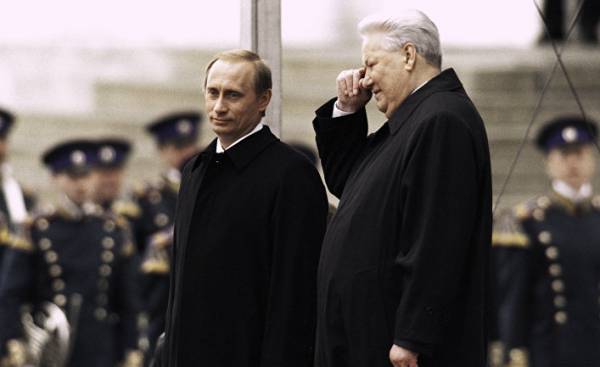 © RIA Novosti, Vladimir Vyatkin | go to Photobacterium of the Russian Federation Vladimir Putin and the first President of Russia Boris Yeltsin on the Red porch on the day of inauguration of Vladimir Putin. 2000
© RIA Novosti, Vladimir Vyatkin | go to Photobacterium of the Russian Federation Vladimir Putin and the first President of Russia Boris Yeltsin on the Red porch on the day of inauguration of Vladimir Putin. 2000
In the Yeltsin era Russia was a typical personification of the oligarchical system. When the oligarchs seized power, they not only dispose of the economic resources of the country, but also participated in the internal political life of Russia. The most important thing because of Western interference in the internal Affairs of the country, they acted not in the interests of the state, and in the interests of the West.
Changed the oligarchy oligopoly
So when Putin in 2000 came to power, he first conducted the purge of the elites. They had to leave politics, but this move was made in order to ensure the safety of the oligarchs and their capitals. Under strong political pressure, many of them fled abroad, and some went to jail. But Putin was not in the plans to eliminate the oligarchy, but rather the opposite: he replaced the previous oligarchy oligopoly. Under Putin, rich, loyal to the government, formed a new oligopoly.
All this time Putin has not changed the economic system. In the Russian economy remain elements of the oligarchical system. Even now, Russia’s economy is monopolistic, high share of the primary sector, and there is no environment for the development of small and medium enterprises. In European countries, the share of small and medium business in GDP is about 40%, while in Russia this figure is kept at about 15%. For citizens of China it seems unthinkable that Russia, with such rich natural resources, cannot improve the economic situation. Say that the chiefs of some Chinese provinces can do to solve the economic problem, and Putin can’t? The example I gave is not just.
Small and medium business in Russia is not developed. Why? In addition to the oligarchic structure of the economy, among other reasons, one can distinguish the ideology and policies. A relatively small political party in Russia support the development of small and medium businesses, but the ruling party immediately suspects them of claims to power and suppress such initiatives. Therefore, small and medium business there is no opportunity for development, although the need is there and is pretty large.
In the first period of Putin’s presidency the economy has developed rapidly. The people finally felt the shifts. It was because during the Yeltsin era, the Russian economy was in very bad condition. At the moment the economic situation in Russia is not so bad, but the younger generation does not see economic growth that was once felt by their parents. Undoubtedly, the economic situation in the country is the reason for opposition rallies.
Putin will not be able to create a strong state, but can it break down
The successes in foreign policy, as it turned out, can’t help in the internal development of the country, but only lead to negative consequences. Putin faces a choice: continue to conduct an active foreign policy and to secure the support of the people, while the West will continue to oppose Russia’s foreign policy and to impose sanctions. The circle is closed. The more active foreign policy is Putin, the more likely to get the support and recognition of the people. At the same time, national recognition and respect, helping him to look away from domestic problems.
In other words, when Putin due to the rigid foreign policy will receive sufficient recognition and respect, he will not need to develop the economy, to get the support of the people. Speaking about the internal development of the country, a tough foreign policy is not the most efficient solution to domestic problems. Now Russia is an enemy to the United States and Europe, and in isolation to develop the economy of the country is even more difficult. Trump put a lot of effort to improve relations with Russia, but was not able to improve them.
The main problem is that Putin is willing to do anything to retain power in their hands. For example, during Dmitry Medvedev’s presidency, Putin was acting Prime Minister, then again won the presidency. Obviously.
Putin puts in the forefront not the improvement of the state system, and the retention of power. As a result, the state is weakening, and the authority of Putin is growing. In the era of Gorbachev and Yeltsin Russia missed the opportunity for institutional reforms, Putin also missed the chance. As a result of “strong back” of Vladimir is a weak Russia. If Putin will continue to be focused on retention of power, and not on the development of the country, what happens then?
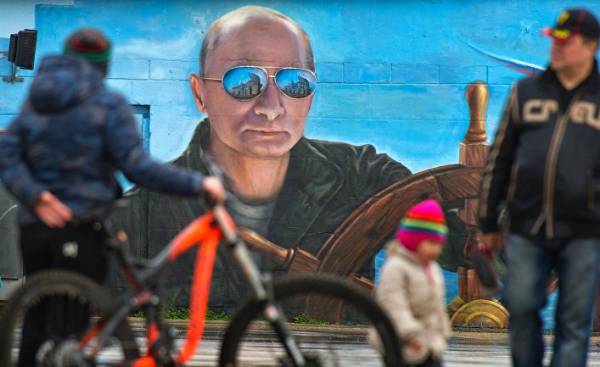 © RIA Novosti, Sergei Maligawa | go to photosangelina Russia. Crimea
© RIA Novosti, Sergei Maligawa | go to photosangelina Russia. Crimea
Largely in Putin’s Russia still has remnants of the Soviet past. High power rating due to the personality of Putin himself, his charisma, but not the result of political activity. In Soviet times the rating of the power reached almost 100%, and no one could have imagined that the Soviet Union will collapse, but this eventually happened. Some people think that the whole history of Russia is enclosed in the statement:
“Tough times create strong people. Strong people create good times. Good times create weak people. Weak people create tough times”.
History tends to repeat itself and bring even more trouble than before. While Putin is in power, the Russian people need to be patient and see what the outcome of this period of Russian history.
